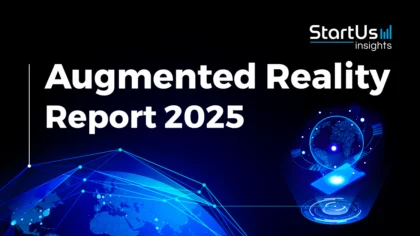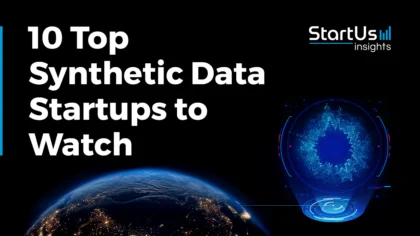Accelerate Productivity in 2025
Reignite Growth Despite the Global Slowdown
Cyber-physical systems (CPS) leverage computer-based algorithms to control and monitor mechanisms. They also feature intricate software-hardware interactions. Some examples include smart grids, autonomous vehicles, industrial control systems (ICS), and robotics. This research focuses on the top 10 industries advancing cyber-physical systems in 2023. For this, we analyzed 2313 emerging companies working in the field. Read more to explore the industry-specific applications of CPS and find out how they impact your business.
Tree Map reveals the Cyber-Physical Systems Examples across 10 Industries
Based on the Innovation Map, the Tree Map below illustrates the Applications of Cyber-Physical Systems in 10 industries in 2023. As digitization introduces large numbers of intelligent systems, their protection against cyber threats is very critical. That is why the cybersecurity industry is most impacted by CPS.
The manufacturing, utility, automotive, agriculture, industry 4.0, and aerospace industries integrate smarter assets, including Internet of Things (IoT) devices, to streamline operations. Further, CPS enhances the interfacing between humans and machines in the healthcare, smart city, and agriculture sectors.
Global Startup Heat Map covers 2313 Cyber-Physical System Startups & Scaleups
The Global Startup Heat Map below highlights the global distribution of the 2313 exemplary startups & scaleups that we analyzed for this research. Created through the StartUs Insights Discovery Platform that covers 3 790 000+ startups & scaleups globally, the Heat Map reveals that the US has a high concentration of cyber-physical system companies, followed by Western Europe and India.
Below, you get to meet 10 out of these 2313 promising startups & scaleups as well as the solutions they develop. These emerging CPS companies are hand-picked based on criteria such as founding year, location, funding raised, & more. Depending on your specific needs, your top picks might look entirely different.
Interested to explore all 2000+ cyber-physical system startups?
Top Cyber-Physical Systems Applications across 10 Industries
1. Cybersecurity
The large-scale integration of cyber-physical systems expands the attack surface for cyber threats. Such malicious actors exploit vulnerabilities and compromise critical systems, leading to infrastructure downtime and sensitive data leaks. To tackle this challenge, the cybersecurity industry is leveraging encrypted communication systems and real-time network and device monitoring.
Further, blockchain drives business decisions and operations with immutable and tamper-resistant data while decentralizing access control. CPS developers are also transitioning to a security-first design approach to ensure data security. Other solutions to tackle cyber attacks against intelligent systems include anomaly detection, AI-assisted protection, and specialized software against ransomware.
C3i Hub enables CPS Intrusion Detection
C3i Hub is an Indian startup that facilitates intrusion detection for cyber-physical systems. The startup’s solution, RobustD, and an integrated controller are deployed in the operational technology (OT) layer. It collects data related to OT devices, calculates anomalies for newly generated measurements, and detects intrusion.
For this, the startup uses machine learning. RobustD thus aids infrastructure management in cities, smart car operations for automotive businesses, and patient tracking in healthcare.
2. Healthcare
Applications of CPS in healthcare operations lead to improved patient monitoring and medication management. Many CPS workflows also automate labor and time-intensive manual tasks while reducing costs. Telehealth solutions are extensions of such intelligent systems that improve access to healthcare. Advances in healthcare CPS include the Internet of Medical Things (IoMT), healthcare AI, machine learning, medical robotics, and more.
For example, healthcare institutions apply AI to analyze massive datasets and improve disease diagnosis as well as deliver personalized treatment recommendations. Additionally, virtual and augmented reality(VR/AR)-powered CPS solutions streamline surgical planning and pain management.
Precision Neuroscience makes a Brain-Computer Interface
Precision Neuroscience is a US-based startup that develops a brain-computer interface. Its flexible electrode arrays are implanted using a micro-slit technique and conform to the brain’s surface to maximize data collection without damage.
In clinical trials, the company’s technology has successfully mapped human brain activity. Using the technology, the startup assists patients with conditions like stroke, dementia, and other neurological conditions.
3. Utilities
Cities now integrate real-time data processing, process automation, and control systems to optimize the operations of utility companies. They improve power generation as well as energy and water distribution and consumption. For example, smart grids collect data across regions to derive insights into power consumption patterns and enable predictive maintenance. This allows energy companies to enhance demand response efforts and avoid blackouts.
Such solutions also support water and sewage infrastructure in making maintenance more streamlined while improving customer satisfaction. Further, implementing intelligent systems, like industrial IoT (IIoT) devices, predictive analytics, and blockchain, aids the integration of distributed energy resources (DERs). This, in turn, reduces the intermittency of renewable resources and accelerates the transition to a low/zero-carbon economy.
Orbis Intelligent Systems offers a Smart Hydrant
Orbis Intelligent Systems is a US-based startup that offers a smart hydrant for utilities. Its multi-sensor configuration detects various pipe and flow conditions and it uploads the data to a portal. The portal, ADARI, allows operators to access these scheduled reports and offers real-time alerts on unauthorized extraction and illegal tampering, reducing leakage and water theft.
The startup also develops a retrofit device, SmartCap, for existing fire hydrants. These solutions enable utilities and municipalities to track water pipeline networks in real time, optimize maintenance planning, and reduce non-revenue water (NRW).
4. Automotive & Transportation
Cyber-physical systems are impacting the automotive and transportation sectors in two key segments – production and post-sales. Automakers integrate IoT, AI, and more at factory floors to increase manufacturing throughput. Other solutions in the sector include advanced driver assistance systems (ADAS), autonomous driving systems, and vehicle-to-everything (V2X) connectivity technologies.
While production-ready solutions cater to the manufacturing segment, the latter elevates the driving experience for vehicle owners. Through such solutions, vehicle manufacturers and mobility service providers ensure passenger and road safety. Further, predictive analytics allows automakers to forecast potential machine and vehicle breakdowns to improve maintenance planning and safety.
Aura Intelligent Systems provides High-Definition (HD) Radar Perception
Aura Intelligent Systems is a US-based startup that delivers HD perception for vehicle radar imaging systems. The startup’s technology combines 5G, sensing, and intelligent software to enable high-resolution 5D information – 3D location, doppler, and signature.
This enables a low-false alarm perception system that enhances the performance of autonomous mobility solutions like drones and ground vehicles. With the startup’s solution, automakers and mobility providers are able to improve vehicle navigation, road safety, and traffic management.
5. Military
Real-time data acquisition, improved communication, and autonomous systems for surveillance and reconnaissance greatly increase the efficiency of military operations. Swarm technology, augmented reality (AR), satellite, edge computing, and unmanned system integrations are key enablers of such solutions. Loitering munitions, also known as kamikaze or suicide drones, and countermeasures against them are gaining interest due to their recent use in the Russo-Ukrainian war.
Through these systems, military organizations improve situational awareness, command and control, personnel training, and more. Militaires further leverage novel encryption techniques and blockchain to make data security and privacy more effective as well as tackle information warfare.
SightX manufactures Edge AI-powered Military Drones
SightX is an Israeli startup that manufactures edge AI-powered military drones. The startup’s autonomous drones leverage electro-optics-based autonomy and connectivity at low power requirements.
Its multi-object acquisition engine also aids target or personnel tracking for mission-critical applications on air, land, and maritime-based platforms. This allows militaries to improve situational awareness and safety on battlefields.

6. Manufacturing
The manufacturing industry utilizes IIoT, digital twins, 3D printers, and cobots, among other cyber-physical systems. They allow businesses to collect production data in real-time, power data processing algorithms, and improve process visualization. Further, 3D printers and robotic systems automate manufacturing workflows to increase throughput and quality control.
Such intelligent systems in manufacturing floors also increase operational flexibility and customization to enable agile workflows. Assisted maintenance is another critical application of CPS in manufacturing. Historic and real-time asset information allows floor managers to monitor equipment health and promptly detect anomalies. This proactive approach reduces unplanned downtime and extends equipment lifespan.
IN40S implements On-Demand Smart Factories
IN40S is a US-based startup that makes cyber-physical infrastructures for the manufacturing sector. The startup’s on-demand smart factory, i-Optimus, combines additive manufacturing, multi-material support, cobots, post-processing equipment, and more. It also features scalable architecture, edge and cloud-powered, AI, and digital warehouse as well as physical security and zero-trust architecture. This allows manufacturers to mitigate in-house hardware and software development while delivering manufacturing at scale.
7. Industry 4.0
Cyber-physical systems are critical factors that enable smart or connected and automated factories. To achieve this, CPS developers leverage low-latent connectivity like 5G, IoT, edge AI, and more. For instance, data-driven process automation platforms and systems allow businesses to streamline their operations while saving cost and time. Digital twins enable companies to track operations in real time while blockchain ensures transparent operations and cybersecurity.
CPS solutions in Industry 4.0 further ensure seamless connectivity across the manufacturing ecosystem and aid human-machine collaboration. For this, businesses leverage cobots and novel human-machine interfaces (HMIs), which enhance productivity and safety. Lastly, CPS enables intelligent supply chains that ensure real-time visibility and traceability while delivering demand forecasts and inventory management.
NQMCyber improves CPS Security
NQMCyber is an Irish startup that creates secure cyber-physical systems. The startup’s high-performance industrial hub features trusted platform modules (TPM), secure boot, and other hardware-based integrity checking. It also features secure storage, multiple network connectivity, AI, IoT, and edge processing to deliver advanced analytics for industries.
8. Smart Cities
Implementing intelligent systems in cities supports four key areas – mobility, infrastructure management, public safety, and energy management. Smart cities utilize IoT sensors, edge devices, AI, connected grids, and more. They enable efficient infrastructure management to track and optimize energy, waste management, and public safety systems. Additionally, intelligent transportation systems aid real-time traffic monitoring, smart traffic signal control, and optimized routing.
This reduces congestion and improves traffic flow. CPS integration further enables demand response programs, facilitates renewable integration, optimizes grids, and more. In the public safety sector, cyber-physical systems increase the performance of surveillance and emergency response systems to monitor critical areas and quickly detect potential threats. These solutions foster citizen engagement and improve the quality of life in cities.
Allas Network aids in Traffic Optimization
Allas Network is a Swedish startup that provides a traffic optimization solution. It combines hardware and software components, Allas Street and Allas Platform. Allas Street features AI-powered cameras, thermal monitoring, and various sensors. Additionally, Allas Platform offers live video feeds and environmental data securely from the distribution sites.
It also preserves citizen privacy with anonymized data, enhances access management, and utilizes an immutable database. The startup’s other scalable hardware platform, Allas Intelligence, uses AI and machine learning. It analyzes data from the Allas Platform to measure air quality and CO2 levels, count pedestrians on crossings, and improve road safety.
9. Agriculture
IoT devices, agricultural drones, blockchain-powered platforms, and smart irrigation systems are the most common cyber-physical systems in agriculture. Connected sensors provide farmers with vital plant and soil health parameters like pH and moisture levels to enable real-time and remote monitoring. Autonomous drones capture and analyze aerial imagery to assess crop health and ensure targeted interventions, also enabling precision agriculture.
Farmers are also transitioning to automated food production systems, such as automated vertical farms and controlled environment agriculture (CEA). This optimizes growing conditions, reduces resource consumption, and enables year-round food production. Moreover, agricultural robots, including autonomous tractors and robotic arms, simplify various farming operations like harvesting and weeding. Lastly, CPS in livestock management aids environmental and animal health monitoring as well as enables automated livestock handling.
Machine Eye Technology facilitates Autonomous Risk Assessment
Machine Eye Technology is a UK-based startup that offers autonomous risk assessment using off-highway vehicles. It leverages edge computer vision and deep learning to continuously assess risks in real time and identify humans.
This solution enables autonomous tractors to navigate in fields with humans and improve worker safety. For example, Agri-EPI Centre utilizes the startup’s perception system to detect people who are not within a safe distance.
10. Aerospace
Advanced flight control systems use sensor data, automation systems, and algorithms to improve flight stability, reduce pilot workload, and improve maneuverability and safety. Further, aerospace manufacturers apply digital twins to simulate and test aircraft designs and monitor aircraft parameters in real-time to enhance maintenance planning. They also leverage additive manufacturing to accelerate rapid prototyping, product/part customization, and reduce lead times.
Other cyber-physical systems in the aerospace industry include IoT devices to improve situational awareness, AI to speed up fault diagnosis, and cybersecurity systems to ensure data integrity and confidentiality. These applications of CPS further enhance operational efficiency, safety, and air traffic management while enabling remote monitoring and diagnostics.
Developair Technologies enhances Aerospace CPS Security
Developair Technologies is a Spanish startup that creates cybersecurity software for cyber-physical systems in the aerospace industry. The startup’s platform offers intelligent assistance across multiple phases of the software development cycle.
It also allows developers to define architecture, features cloud processing, and supports interaction with complementary tools. The startup’s software accelerates software validation and automatically generates tests and oracles based on specific requirements. As a result, it saves costs associated with software specification, implementation, and testing.
Discover All Cyber-Physical System Startups
AI-driven and edge or fog-hosted CPS will move data processing closer to the edge while ensuring high-performance data processing. IoT integration is accelerating across industries, powering more and more intelligent systems. Further, swarm robotics, digital twins, 5G, and explainable AI will improve the performance of cyber-physical systems while novel cybersecurity solutions are critical to keep them online. These technologies, along with other innovations in the field, will make CPS more accessible and interoperable. Get in touch to identify specific cyber-physical system startups & solutions that advance your business!
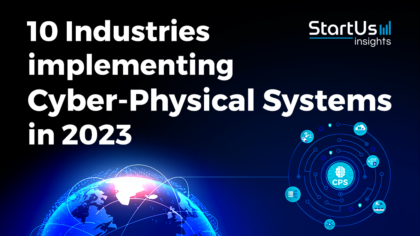
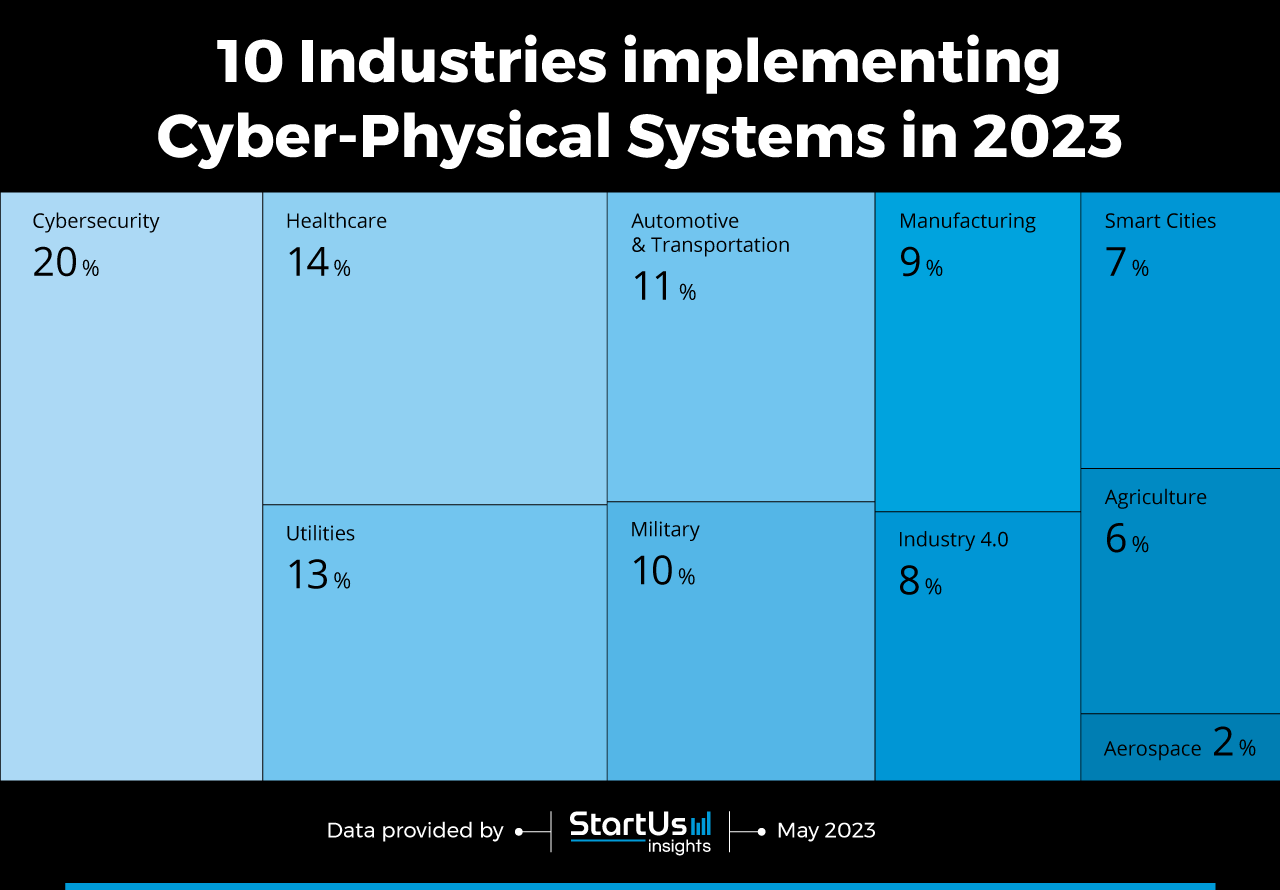
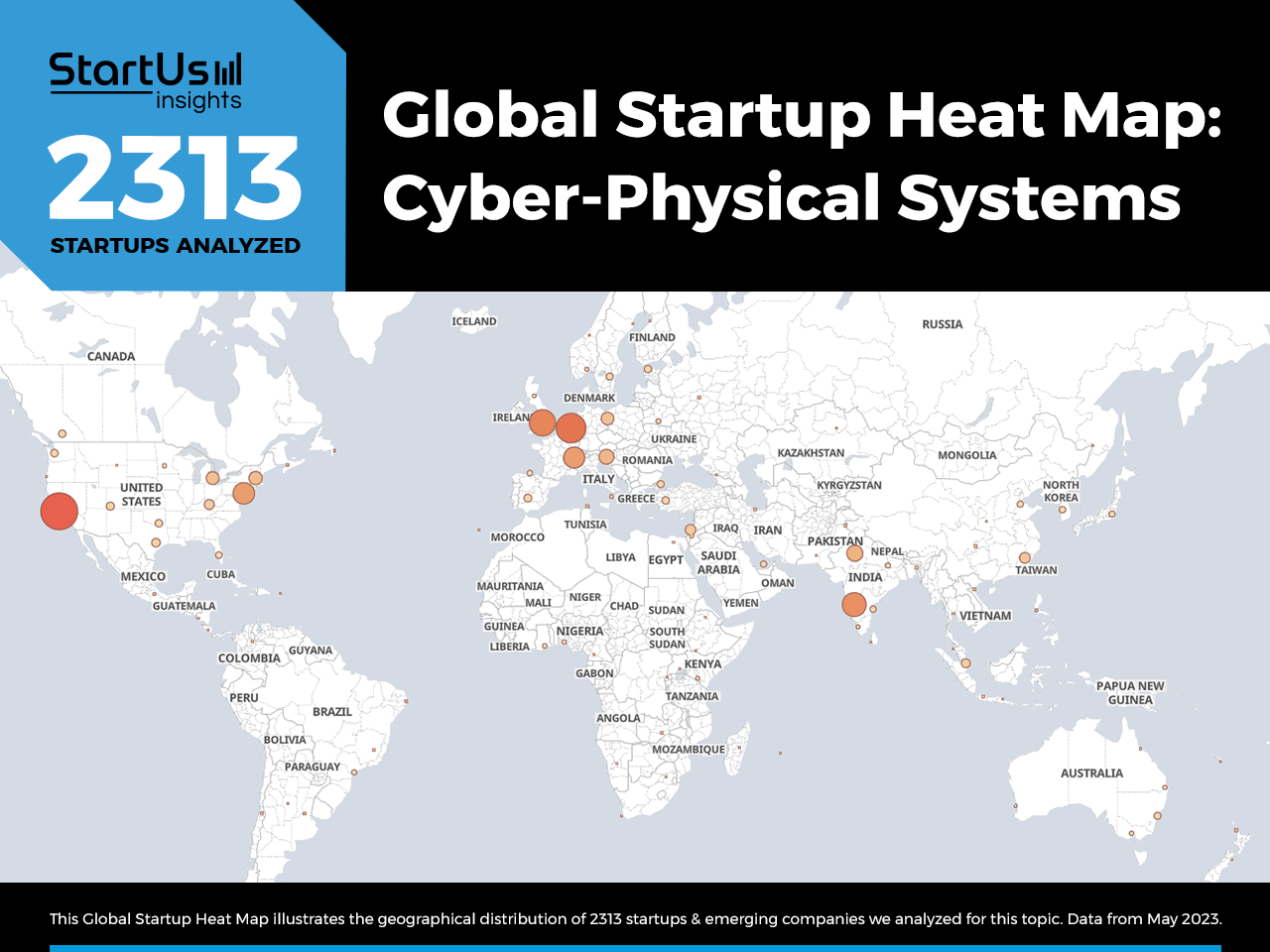
![10 Top Digital Twin Startups and Companies for Industry 4.0 [2025]](https://www.startus-insights.com/wp-content/uploads/2025/06/Digital-Twin-Startups-for-Industry-4.0-SharedImg-StartUs-Insights-noresize-420x236.webp)
